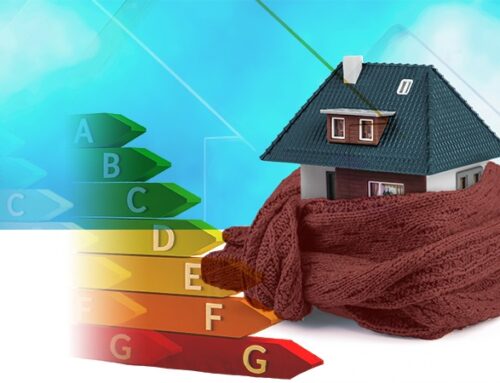In my second post on energy myths I addressed the myth that the energy price cap would save money for consumers. Another money-saving myth relates to smart meters, with politicians insisting that consumers will save money on their bills thanks to smart meters, while the press is scaring people into thinking that cooking Christmas dinner will suddenly become extremely expensive as smart meters will allow suppliers to unleash “surge pricing” on them.
Myth #3: Smart meters will save money for consumers
The smart meters programme was launched on the premise that if consumers know the details of their consumption, they would reduce their energy usage, thereby saving themselves money. In order to do this, the would need a smart meter, together with a device called an “in-home display”. Energy suppliers were tasked with the responsibility for installing smart meters in their customers’ homes, with targets for delivery, however while it is mandatory for suppliers to offer its customers a smart meter, it is not mandatory for them to accept.
The plan has been criticised not just for its initial assumptions – the experience elsewhere is that consumers rarely make meaningful changes to their energy usage even when they know the details of their use (and even where time-of-use tariffs apply) – but also for its implementation: requiring suppliers rather than distribution network operators to be responsible for the installation creates conflicts of interest, and the programme itself has been designed based on unsuitable technology meaning that in many areas smart meters won’t work at all, and many first generation (“SMETS 1”) smart meters lose their smart functionality if the customer switches to another supplier.
Some of these problems may be resolved with the second generation (“SMETS 2”) smart meters, but few of these have so far been installed, and their installation target dates keep being pushed back.
The cost-benefit equation does not add up
Back in 2011, the Government believed that the smart meters programme would cost £11.3 billion to implement and would deliver benefits of £18.6 billion over 20 years (ie a benefit of £7.3 billion). Since then the value of the expected benefits has fallen significantly – to £6.2 billion in 2014 (saving households £26 in 2020) to £5.7 billion in 2016 (or £11 for households in 2020 and £47 in 2030). With subsequent reports that the costs of the programme have escalated alarmingly, the National Audit Office is due to report on the entire roll-out in the autumn – it will be interesting to see whether any net savings remain.

The Government is keen to point out that smart meters will save people money, and proudly claim the scheme will save households £47 /year. This was indeed the figure from the most recent cost-benefit analysis carried out in 2016, but is the projected saving for 2030. The same report projected a saving of only £11 per household in 2020 (or 21p per week).
To put this figure in context, according to Ofgem, environmental and social policy costs make up 14.79% of electricity bills – on an average electricity bill of £554 per year, this equates to £82 per year. The Office for Budget Responsibility calculates that environmental levies will more than double between 2016/17 and 2022/23, so that amount will increase to £164. An £11 saving from smart meters, even if it materialises, which is open to question, is small when compared with the growth in key cost areas.
The experience elsewhere is not encouraging. Few countries that have implemented smart meter programmes have audited the outcomes, but Ontario in Canada and Victoria in Australia did and both found that the costs exceeded the benefits. A 2014 review by the Ontario Auditor General found that the smart meter rollout was almost twice over budget and had failed to deliver the demand reductions anticipated. Similar findings were made by the Auditor General of Victoria, which found that only 80% of the projected benefits would be realised, while the net cost could end up being higher than its most recent estimates, despite reforms to the programme.
Last month, the British Infrastructure Group, a cross-party group dedicated to championing better infrastructure across the United Kingdom, published its own report into the scheme:
“This report, which has the support of 93 Parliamentarians, has found that the planned £11 billion roll-out has been plagued by repeated delays and cost increases, with suppliers now almost certain to miss the 2020 deadline, and programme benefits likely to be slashed even further. Moreover, although the entire programme has been funded by customers through higher energy bills, unlike energy suppliers themselves, they are not presently guaranteed to see the majority of the savings that do materialise.”
As the report points out, not only may the projected savings fail to materialise, but there is no guarantee that any savings that are available would be passed on to consumers. This means the only way consumers would save money would be by reducing consumption, and there is no real evidence that smart meters lead to meaningful changes in consumer behaviour.
The impact of time-of-use pricing
One of the mooted benefits of smart meters is that they will unlock the potential for time-of-use tariffs to be applied more broadly, and in a more granular way than before (previously Economy 7 tariffs were available which provided off-peak rates between midnight and 7am – this required special dual-tariff meters that were activated by a radio signal carried within the longwave carrier of BBC Radio 4 (198 KHz)).
Proponents of time-of-use pricing argue that by encouraging consumers to shift their discretionary consumption, network reinforcement costs can be avoided. Of particular concern is the prospect of millions of householders trying to charge their electric cars when they come home from work – right in the middle of the evening peak.
However, there is limited evidence so far to suggest that time-of-use pricing actually works. The experience in Ontario suggests that the differences in price between the highest and lowest price periods needs to be large before customers will change their behaviours.
This is to a certain extent reflected in the experiences in the GB market with the practice of triad-avoidance. Consumers pay a share of network costs based on their consumption during the so-called “triad” periods – the three half-hourly periods with the highest consumption between 4pm – 7pm on weekday evenings between November and February each year (each triad must also be separated by at least 10 days). For large users, these costs can be significant, so some industrial and commercial consumers actively shift their consumption in order to avoid expected triad periods, and an industry has grown around predicting when those periods might occur.
There are mixed opinions as to the impact of time-of-use pricing on demand profiles, with some recent analysis by Roger Andrews on the Energy Matters blog suggesting demand-response isn’t very responsive in practice, however the above chart (based on National Grid triads data) indicates that the triad-avoiding behaviour of some industrial and commercial consumers is having a measurable impact on overall demand patterns on the system.
It could be argued that moving consumption by half an hour (which is one settlement period) is insignificant at the whole system level, however that is how the triad-based cost-recovery system works, so no conclusions can be drawn about the prospects for other schemes designed to shift consumption out of the evening peak altogether, other than to say that it might be possible to develop time-of-use pricing schemes to deliver other tightly defined objectives.
Fears over “surge pricing”
Related to this, another smart meters-related myth has recently emerged – in June the Daily Telegraph published an article suggesting that energy suppliers would use smart meters to deploy “surge pricing” that could lead to half-hourly pricing for households:
“So-called “time of use” tariffs would see households pay more for watching television, charging gadgets and running the washing machine during popular times such as in the mornings and evenings. The controversial deals would see energy prices peak on special events like Christmas Day and Easter when millions of households are all using ovens to cooking lunch at the same time.”
The article quotes Jerry Fulton, the former head of gas and electric meter technology at Ofgem describing time-of-use pricing as the “hidden agenda” behind the smart meter project, and that they would inhibit switching since comparing different half-hourly tariffs would be “a complete nightmare”.
It’s hard to know where to begin with articles like this, particularly from what is generally a well-regarded newspaper. Time-of-use pricing is indeed part of the smart meters agenda, but there has been no conspiracy, and Ofgem is currently consulting on (among other things) how they can be fairly applied in a domestic context. If they work as hoped, they will save consumers money in terms of avoided infrastructure costs, and any higher prices during peak times should be offset by cheaper prices off-peak. This may not work in practice, and it will be Ofgem’s job to make sure time-of-use pricing is not used to exploit consumers.
In case anyone is wondering, peak demand on Christmas Day is generally at lunchtime rather than the usual evening peak period, and is typically two-thirds of the maximum demand for the winter period. When it falls during the week, it is the weekday with the lowest peak demand level of the entire winter.
The new report from the National Audit Office in the autumn should provide a more up-to-date picture of the economics of the smart meter programme, however, bold claims about how smart meters will save money for consumers would be expected by most people to mean savings of some significance were available.
It’s hard to get excited about 21p per week, particularly when bills will continue to grow due to the impact of environmental policies, network costs and wholesale costs, as described in my previous post. To all intents and purposes, smart meters will not save money for consumers.
Energy myths series Myth 1: Energy supply is not a goldmine and life is tough for new entrants Myth 2: The retail price cap will not save money for consumers Myth 3: Smart meters will not save money for consumers Myth 4: Renewable electricity is not cheap |








Completely agree. Although I think Jerry Fulton has a point; one that I hadn’t thought about before. It’s going to pretty hard to compare ToU tariffs. At the very least granular historic data is going to be needed to be used to infere the impact of switching tariffs. Given that the rationale for ToU tariffs is that users shift their demand, that comparison is going to prove very difficult.
Just how flexible is your demand? How correlated are we with the rest of society? They are very wonky question not a lot of people are going to know the answer to.
You could view investment in smart meters as some kind of real option but that would require them to be pretty flexible tech.
I think there will be a couple of answers to this – one is that I doubt there will be much HH pricing at the domestic level. ToU tariffs would make more sense if they were peak/off-peak or aligned with EFA blocks.
The other is that smart meter data could itself be used as the basis for a customer’s price comparison. There could be a facility for the price-comparison provider to link with the smart meter data and produce some comparions based on actual consumption over the previous year, along with some macro data such as does the customer have an EV. Examples could be generated to illustrate the effect of different actions with different tariffs eg reducing consumption in the evening peak by 10%.
Price comparison exercises would have to become more iterative and interactive, but I think if the number of variables is contained by staying away from HH granularity, then it could be manageable.
You do not need a smart meter to measure your electricity usage. You only need a usage monitor which have been available for a long time. I have one from eon from 10/12 years ago which still works well. The ONLY way to reduce your costs is to reduce your usage of electricity. Llike most other utilities the more info they gather from the easier it is to work out how to make more money from you. Be sensible and AVOID.
Exactly right and a point I’ve made before in relation to smart meters (just not in this particular post). These usage monitors have been around for anyone that wanted them for a long time, so the consumer information argument for smart meters was always spurious. Often the energy savings utilities recommend alongside the use of smart meters cost money such as “buy more efficient appliances” or “install double glazing/insulation” etc. These suggestions might be sensible, but it can take years for those investments to be repaid through lower bills.